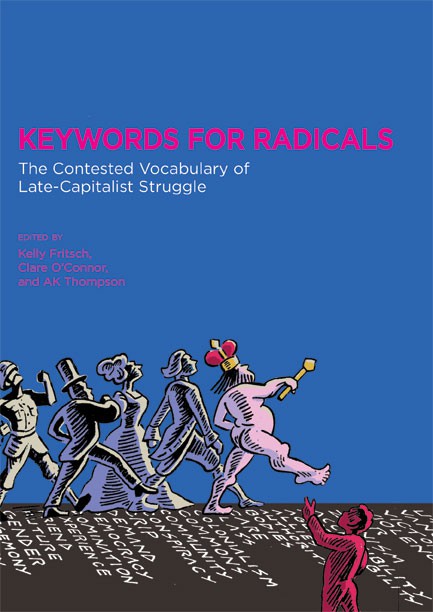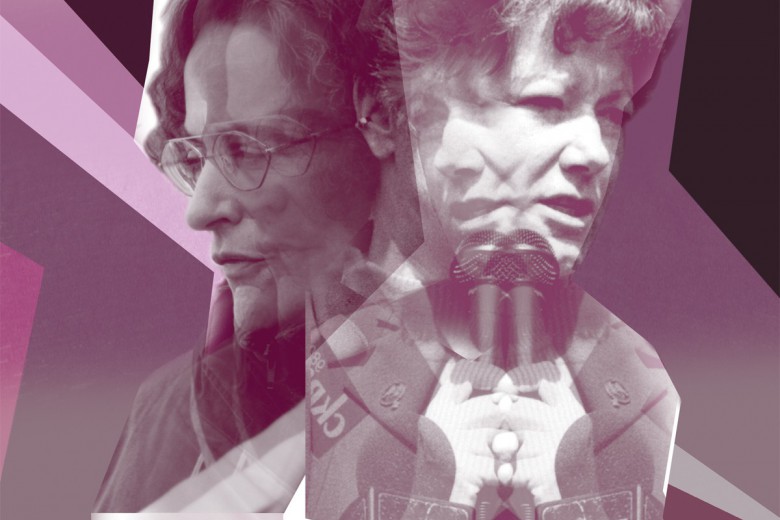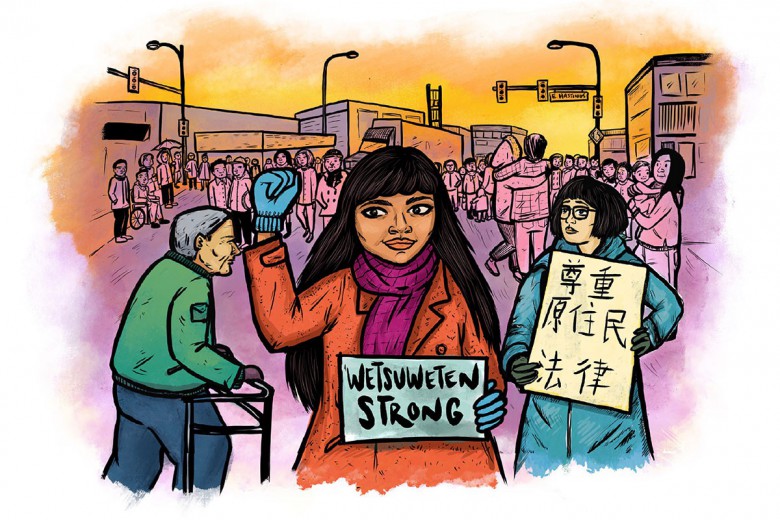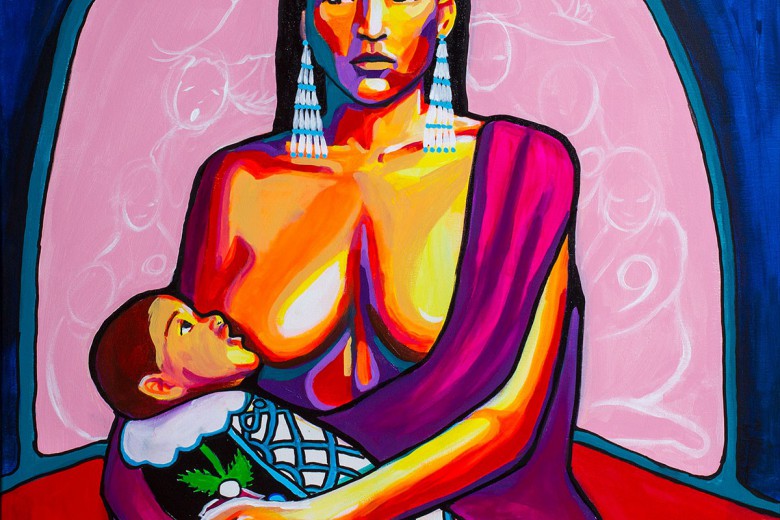
Edited by Kelly Fritsch, Clare O’Connor, and A.K. Thompson
AK Press, 2016
In 1966, situationist Mustapha Khayati argued that language is a living reality: “A definition is always open, never definitive. Ours have a historical value, they are applicable during a specific period, linked to a specific historical practice.” In the new compilation of texts and words, Keywords for Radicals, published by AK Press, the authors of the entries attend to both the liveliness and historicity of the words that matter to radicals. With the care of gardeners, the contributors tend to each word as it has grown through history into the multiple and experienced varieties that stand before us today. The book contains 57 words, alphabetically organized from “Accessibility” to “Zionism,” and including “Colonialism,” “Commons,” “Reproduction,” “Friend,” “Trans*,” “Crip,” and “Body,” among many others.
Coming in at over 550 pages and handling almost like a large cube, this massive anthology was compiled by the previous editors of Upping the Anti: A Journal of Theory and Action – Kelly Fritsch, Clare O’Connor, and A.K. Thompson. They argue that the words in this book – and words in general – are not static, natural, or divorced from power, but historically engaged: “these histories contain traces of the struggle not only to name but also to create the world.” This book thus participates in a dialogue with other “word projects” like Raymond Williams’ Keywords: A Vocabulary of Culture and Society, the “Lexicon Pamphlet Series” (Institute for Anarchist Studies), “Definitions for the Revolution” (Colours of Resistance Archive), Political Keywords: A Guide for Students, Activists, and Everyone Else (Andrew Levine), and Contradictionary (CrimethInc).
Keywords for Radicals is framed as an extension or expansion of Williams’ Keywords, which focused on words’ changing uses and meanings. Keywords for Radicals explores the culture of radical discourse to construct a “sociohistorical map.” The editors and authors of this collection attentively illustrate what they call “the points at which language becomes ‘brittle.’” In particular, they attend to the ambiguity of language that can lead to struggles and contestations that emerge around individual words. By historicizing the concepts and putting them into dialogues, the authors (and editors) are exploring the conflict, tensions, and disjuncture (quoting Williams) “within language.”
Radicals often understand that language helps describe, produce, and challenge the world in which they are entangled. The editors situate themselves within the materialist tradition and try to distance themselves from “idealist philosophy,” stating, “language doesn’t produce the world,” though it “does organize and delimit its objects.” While still maintaining their devotion to a Marxian position, they leave room for the materiality of language and its force and effect on the world. The editors embrace a tension in their articulated binary (idealist/materialist) by involving some authors who reject or challenge this very dichotomy. While aware that the editors had to work with significant length constraints, I did find an absence of terms and analysis that did not fit into a specific, cordoned-off radical tradition. In the editors’ attempt to “limit sprawl,” they framed radical discourse safely within the boundaries of a communist (libertarian or otherwise) tradition that avoided the productive tensions that could have opened up radical concepts and words to different directions and paths – the weeds that are lively but live outside the structure of the garden.
I return to Khayati to reflect on the possible desires and stakes in a project like Keywords for Radicals. “Every revolutionary theory has … to destroy the dominant sense of other terms and establish new meanings in the ‘world of meanings’ corresponding to the new embryonic reality needing to be liberated from the dominant trash heap.” This collection is a worthwhile and important contribution to the exploration of our language and the tensions that are produced as it is deployed within radical culture.






